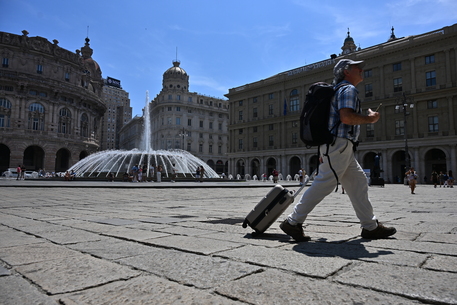(ANSA) - ROME, JUL 18 - The long heatwave Italy is enduring
is set to intensify, with the number of major cities on red
alert rising from 13 on Thursday to 17 on Friday.
When an area is on red alert, it means the heat is so intense it
is a threat to active healthy people and not just vulnerable
groups such as the sick, the elderly and young children.
The cities currently on red alert, out of the 27 monitored by
the health ministry, are Ancona, Bologna, Campobasso, Florence,
Frosinone, Latina, Palermo, Perugia, Pescara, Rieti, Rome,
Trieste and Viterbo.
On Friday Bolzano, Bari, Brescia and Verona will join them.
Temperatures are forecast to get as high as 40°C in areas of
southern Italy at the weekend.
The heat is not the only problem with high humidity levels
making things especially uncomfortable.
Scientists say the climate crisis caused by human greenhouse gas
emissions is making extreme weather events such as heatwaves,
droughts, supercharged storms and flooding more frequent and
more intense.
Although there are many sources of the greenhouse gases that are
causing global heating, the main driver is the burning of fossil
fuels such as oil, gas and coal, sales of which generate huge
profits for the world's energy giants. (ANSA).
Number of cities on heatwave red alert to rise to 17 (3)
Temperatures forecast to hit 40°C in south, with humidity high
